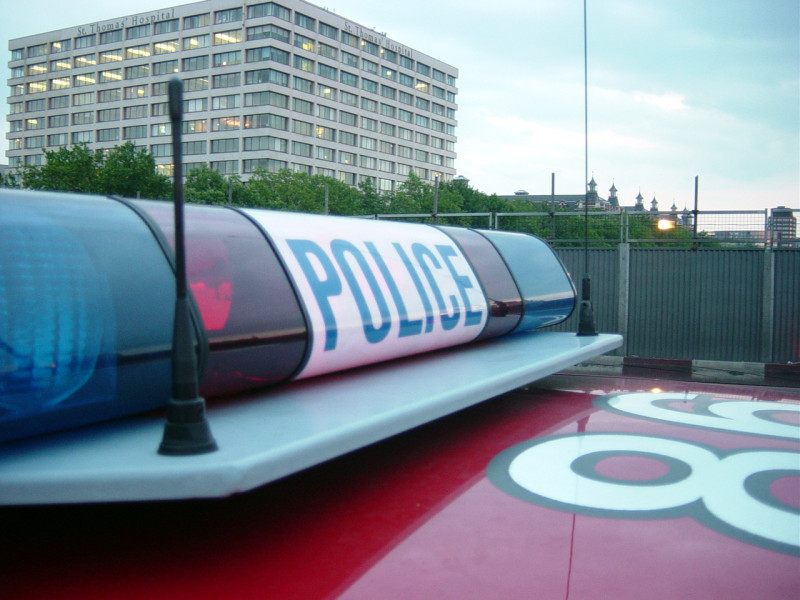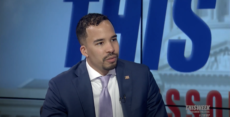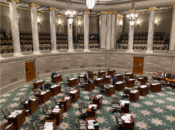Tensions flared Thursday as the chairman of the House Criminal Justice Committee and a representative of the Missouri Sheriff’s Association clashed over data presented in an attorney general’s report on police stops in the state.
The 2018 Vehicle Stops Report — an annual study released by the Missouri attorney general — found the disparity level between black and white drivers pulled over in the state has increased to the highest level yet. But Kevin Merritt, executive director of the Missouri Sheriff’s Association, testified the data was “inappropriate” and didn’t paint a full picture of why drivers were stopped or the intentions of officers.

“The sheriffs of Missouri want to continue to collect the data, but they want the data to make sense, that the data is reliable,” Merritt testified. “Simply because a disparity exists, does not provide imperical data that there is a racial bias.”
Merritt also complained the report does not include whether the stops account for individual drivers or a repeat offender who often violates traffic laws — thus not painting a full picture, he said.
But Merritt clashed with Rep. Shamed Dogan, the Republican chairman of the committee. Merritt said he didn’t care if Census data — which can be outdated — or other population information is used because that type of benchmark will show a disparity but not the reason for it; Dogan said it was “common sense” to use up-to-date statistics.
Dogan also pressed Merritt for a theory on why the disparity rate has increased substantially over the years since the report has been compiled. Merritt said he didn’t have a theory but suggested studies have shown “different driving patterns” among different racial or socioeconomic groups of people.
Additionally, the pair quibbled when Merritt asked Dogan to point to a specific department that has engaged in racial bias consistently.
“It’s hard to measure something like disrespect. But people know it when they see it. People feel that,” Dogan said, pointing to individuals who have testified at both hearings. “I want to find some way to hold those departments accountable because it’s clear that it’s not happening now.”
“You cannot do that with the disparity index alone. You’re making my argument for me, representative,” Merritt responded. “You’re relying on the index when it’s convenient, and you’re not relying on it to make another point.”
Jeanette Mott Oxford, the executive director of Empower Missouri, followed Merritt with what she called an “emotional outpouring.” Oxford said Merritt’s testimony was “agitating”
“When do we acknowledge racism? It’s time,” Oxford said.

Thursday’s hearing in Kansas City was the second on racial profiling and civil asset forfeiture planned for the interim. The first was held in Clayton last week for nearly five hours.
After the Clayton event, Dogan said he hoped for more law enforcement to be present at the Kansas City hearing. Aside from Merritt, Lt. Justin McCullough, Missouri State Highway Patrol’s (MSHP) legislative liaison, testified Thursday.
McCullough noted the MSHP’s disparity rate was fairly low, especially when compared to other departments. He contributed it to the agency’s values of compassion and respect.
“One of the things that we pride ourselves on tremendously is hiring the best people out there,” he said. “We have an obligation, a vision, to make sure those that live in our state and those that travel through our state are treated with respect, can safely navigate through our state, and that’s something we drill in from day one.”
McCullough also noted the MSHP hasn’t received a “bias-based, profiling complaint” in the past two years. It has received six out of 1.8 million traffic stops in the past five years, all of which were “resolved to the complainant’s satisfaction.”
The statewide statistics in the report, which has been compiled annually since 2000, showed black motorists were stopped at a 76 percent greater rate than expected based upon the portion of the population at least 16 years old. And when compared to white motorists, black individuals were 91 percent more likely to be stopped.
Additionally, the report found the statewide search rate for black and Hispanic drivers were greater than white individuals (black: 8.93; Hispanic: 8.44; white: 6.04) in 2018, but the contraband hit rate was higher among white drivers (black: 33.82; Hispanic: 29.15; white: 35.68). Arrest rates were also higher for black and Hispanic people (black: 6.37; Hispanic: 6.26; white: 4.25).
Dogan said he plans to hold another hearing in Columbia or Jefferson City in the near future.
The full report can be found here.

Kaitlyn Schallhorn was the editor in chief of The Missouri Times from 2020-2022. She joined the newspaper in early 2019 after working as a reporter for Fox News in New York City.
Throughout her career, Kaitlyn has covered political campaigns across the U.S., including the 2016 presidential election, and humanitarian aid efforts in Africa and the Middle East.
She is a native of Missouri who studied journalism at Winthrop University in South Carolina. She is also an alumna of the National Journalism Center in Washington, D.C.
Contact Kaitlyn at kaitlyn@themissouritimes.com.


















